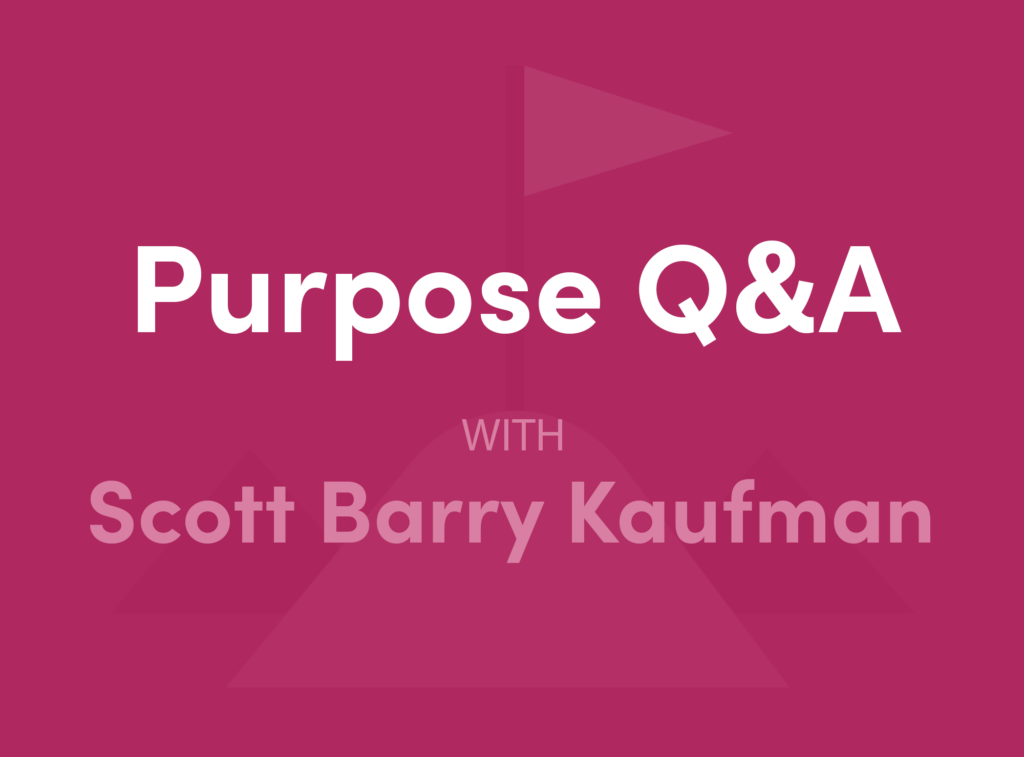
Scott Barry Kaufman, the author of Transcend: The New Science of Self-Actualization and the host of The Psychology Podcast, talked to us about purpose and how to cultivate it. Here are a few highlights:
How do you define purpose, and why is it important?
I define purpose as having an energizing goal that is meaningful to you. When you have a purpose, there’s often a fundamental reordering of your most central strivings. Things that may have mattered to you before don’t seem to matter as much anymore, and things that didn’t matter may have moved up in importance. The goal itself is energizing, not depleting. You’re not thinking, “I have to do this.” You want to do it.
How can parents and teachers help young people think about purpose?
Parents and teachers can ask questions that help kids figure out what’s most important to them. Here are some examples: Through the course of your day, which things are the most intrinsically enjoyable to you or just feel great? Which ones not only feel great but also make you feel like you’re learning and growing in some way? When you wake up in the morning, what are some of the first things you think about that you’re excited about doing during your day? These kinds of questions help disentangle what goals they feel they should have versus the goals they genuinely want to have.
Does focusing on your own goals make you selfish?
On the contrary. As renowned psychologist Abraham Maslow wrote in his 1962 book Toward a Psychology of Being, “Self-actualization…paradoxically makes more possible the transcendence of the self, and of self-consciousness and of selfishness.” Finding your purpose can help you think beyond the self and connect to the larger world.
What do people often get wrong about purpose?
In the classroom, we sometimes treat our subject matter—math, grammar, history, and so on—as the most important thing in the world. If a student is more interested in something else, we disapprove. We overlook the other sparks and talents they have. So I think we should all—from teachers to parents to even friends—try to spot the potential and the seeds of a higher purpose that are often quite evident but ignored.
We all want to feel like we’re uniquely making some impact in the life that we’re living. Sometimes teenagers can act out in ways that scream, I want to matter. The more we help kids focus and channel their energy, opinions, and thoughts, the better. Even the exploration process can make them feel a greater sense of agency, as though they are the author of their lives and not just passive recipients of their environment.
